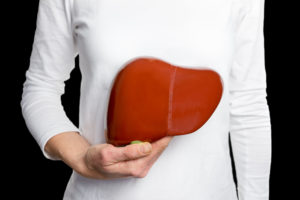
After all, it’s not like you can measure how well it’s working. You know if you’ve got high blood pressure. Short on breath? It could be your heart or your lungs. Can’t stop going to the bathroom? Maybe your bladder is on the fritz.
But the clear messaging just isn’t part of the liver’s schtick.
Your liver does a lot for you. It keeps you healthy by filtering out toxins and removing waste. But sometimes it has to work too hard. If you drink a lot of alcohol, are regularly battling viral infections, or have an unhealthy diet, your liver can run into problems.
These problems, however, are really tough to recognize. They can put you at risk for serious illness. There are some indicators that trouble is brewing in your liver, and recognizing them could have the potential to save your life.
- Fluid retention: If your belly or legs are swelling up with no reasonable explanation, it could be a message from the liver. Fluid retention occurs in roughly half of people with cirrhosis.
- You’re seeing more yellow: Jaundice is another sign that your liver is under severe stress. If your urine is consistently dark, or your skin and the whites of your eyes have a yellowish tint, it could be a sign that your liver is not absorbing bilirubin.
- Inexplicable bleeding: A damaged liver may also cause you to bleed in some strange ways. Blood may appear in vomit or come out of your rectum. You may also notice varicose veins developing along your stomach or esophagus.
- Confusion: If your liver can’t effectively filter toxins from your body, some of them may make their way into your brain. Inexplicable confusion, lethargy, or memory problems can all indicate a struggling liver.
If you’re noticing any of these symptoms, or a combination, you should get to the hospital for an exam. But if you’re feeling good and don’t give a lot of thought to your liver, prevention should be top order.
You can help keep your liver healthy by getting regular exercise, eating a nutrient-rich diet, maintaining a healthy weight, and keeping alcohol consumption at a moderate level.